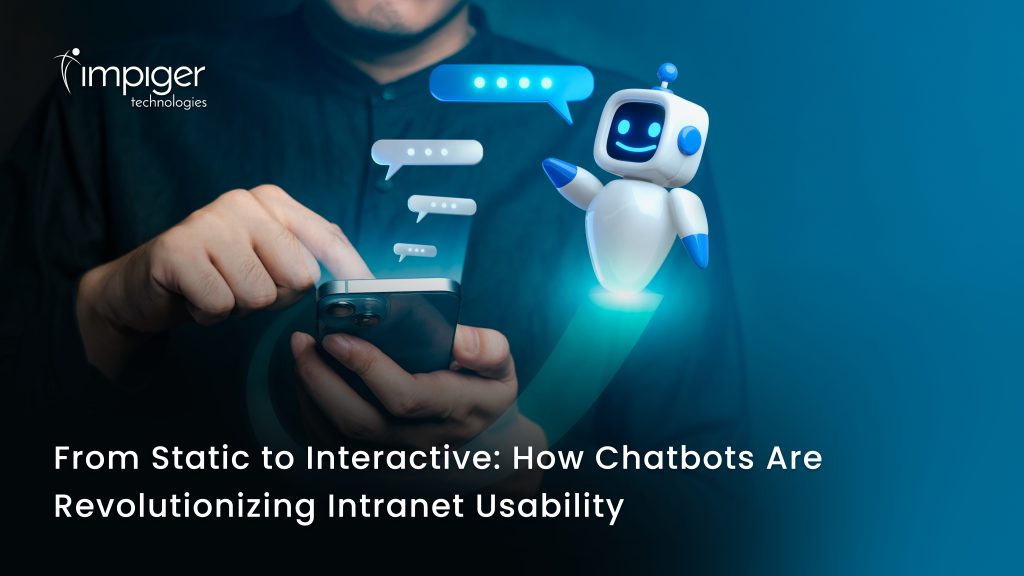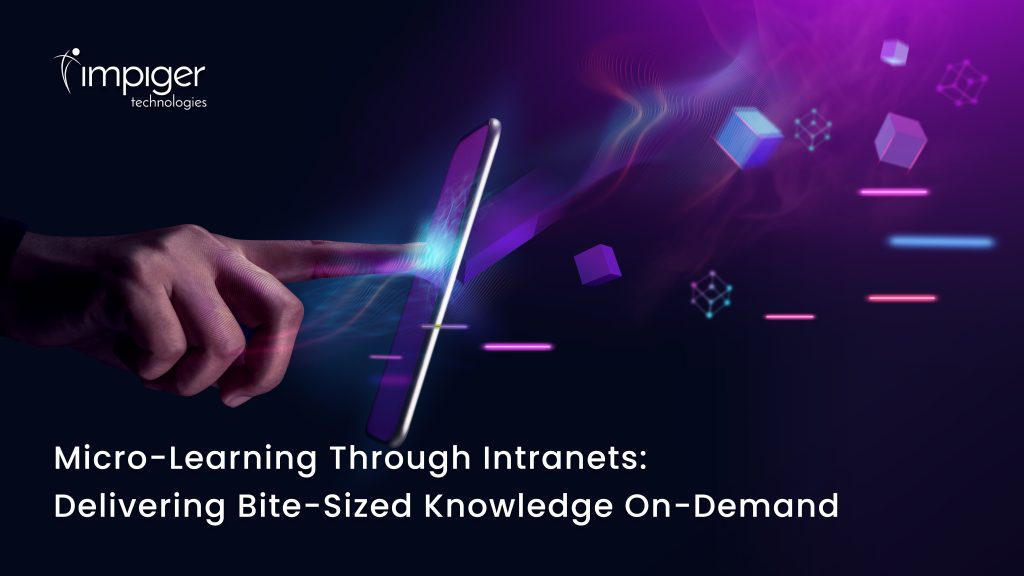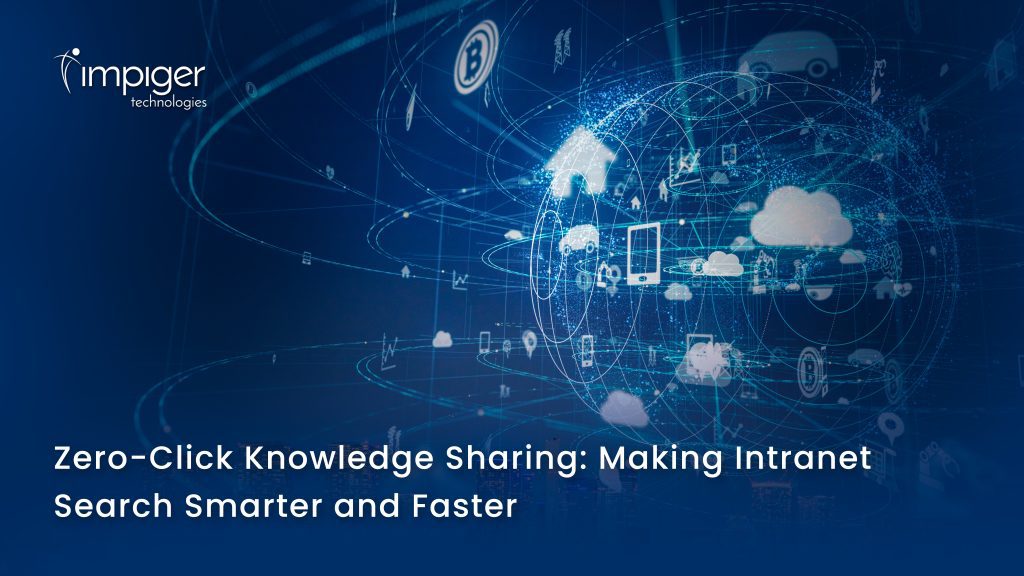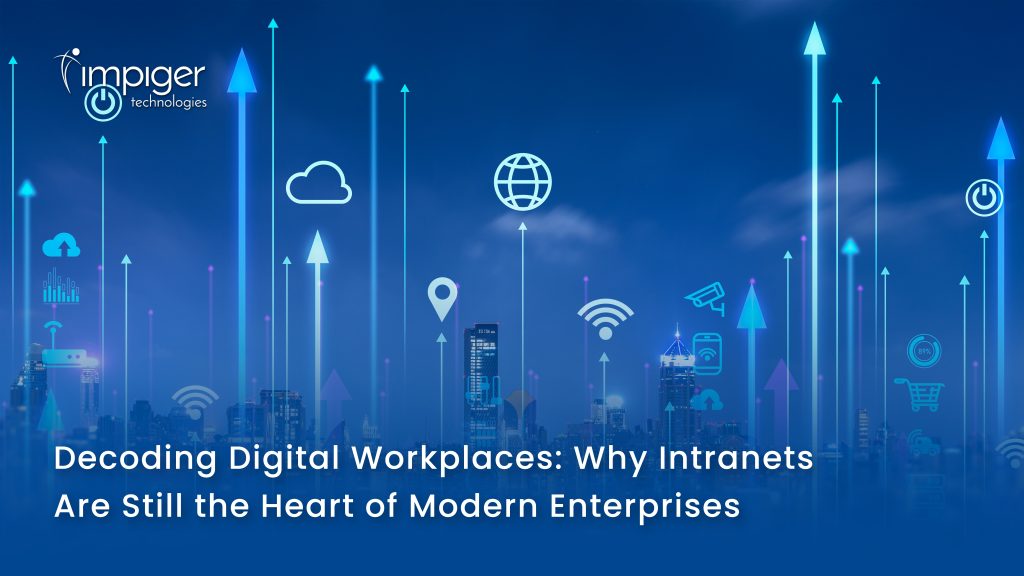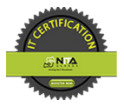The ever-evolving business world, driven by technology, requires organizations to prioritize digital transformation to remain competitive. Managed Services providers have introduced innovative concepts such as “Zero Touch” and “Zero Incident” to support this effort.
This all-inclusive blog will delve into the essential components of Zero Touch and Zero Incident Managed Services and how they help organizations achieve smooth digital transformation.
The Evolution of Managed Services: From Reactive to Proactive
In the past, businesses only sought IT support after an incident, making it a reactive process. However, managed services have brought about a paradigm shift by offering proactive monitoring, maintenance, and incident resolution.
Businesses can enhance their uptime and productivity by identifying and addressing potential problems before they disrupt their operations. Managed services have progressed from the break-fix approach to proactive and preventive methods, which allow businesses to concentrate on growth and innovation instead of handling IT issues in crisis mode.
The Role of Managed Services in Digital Transformation
Digital transformation requires a robust IT infrastructure that can handle emerging technologies and changing market dynamics. Managed services play a crucial role in this process by providing the necessary expertise, tools, and processes to support digital initiatives effectively.
Partnering with experienced Managed Services providers enables organizations to leverage innovative technologies like cloud computing, AI, and the IOT to drive business innovation and gain a competitive edge.
Benefits of Managed Services in Digital Transformation
Utilizing managed services offers numerous advantages and has become vital in the rapidly changing business landscape, propelled by technological advancements and digital progress.
Here are some of the key advantages that organizations can experience by embracing managed services:
Improved Uptime:
One of the significant advantages of managed services is the ability to enhance uptime and ensure business continuity. With proactive monitoring and incident resolution, managed service providers can identify potential issues before they escalate into significant problems, minimizing downtime and keeping business operations running smoothly.
Reduced Costs:
Managed services offer cost-effective solutions for businesses. By leveraging automation, machine learning, and cloud computing, managed service providers can streamline IT tasks, reduce human errors, and optimize resource utilization. By adopting this approach, businesses can save costs by avoiding the need for extensive in-house IT teams and infrastructure investments.
Increased Agility:
Managed services enable organizations to become more agile and responsive to changing market demands. With experts handling IT operations and incident response, internal IT teams can focus on strategic initiatives and innovation, driving the company’s growth and competitiveness.
Enhanced Security:
Security is a top concern for businesses in the digital age. Managed service providers implement best practices and utilize security orchestration, automation, and response (SOAR) frameworks to address security threats and incidents proactively. This results in a heightened security posture for businesses, safeguarding sensitive data and protecting against cyber threats.
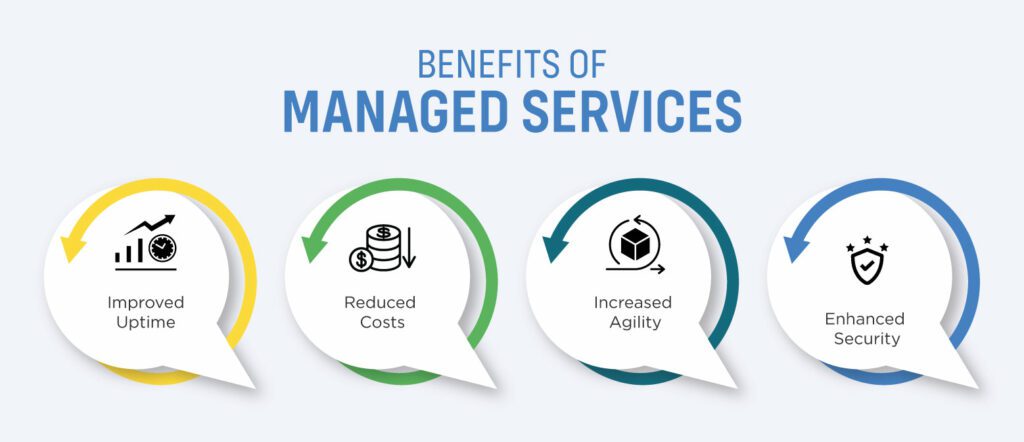
Managed Services vs. Traditional IT Support: A Comparative Analysis
When it comes to IT support, it’s essential for businesses to evaluate the differences between managed services and traditional options. With the utilization of managed services, you will receive continuous and uninterrupted 24/7 monitoring, prompt and efficient incident response, as well as expert and highly skilled professionals to manage even the most complex IT issues. These benefits distinguish managed services from break-fix models commonly associated with traditional IT support.
In a traditional IT support model, businesses typically face delays in incident resolution, leading to prolonged downtime and potential revenue loss. On the other hand, managed services proactively address issues, reducing downtime and increasing overall operational efficiency.
Benefits of Zero Touch and Zero Incident Managed Services
Zero Touch and Zero Incident Managed Services are leading innovative IT support. By automating tasks, proactively resolving issues, and providing self-help tools, these methodologies streamline operations, reduce downtime, and enhance user satisfaction. Businesses are discovering the benefits of these approaches.
Gartner predicts that by 2024, 60% of organizations that implement a combination of proactive and automated Zero Incident frameworks through managed services will experience a significant reduction in the number of IT incidents, leading to a substantial increase in operational efficiency and cost savings.
Zero Touch Managed Services are designed to eliminate the need for manual interventions, freeing up IT teams to concentrate on strategic initiatives and driving business growth. On the other hand, Zero Incident Managed Services are aimed at creating a proactive IT environment that minimizes disruptions and enhances system reliability, ensuring continuous business operations.
The Use of Machine Learning in Managed Services
Machine learning plays a critical role in transforming managed services from reactive to proactive and predictive. Managed service providers leverage machine learning algorithms to automate various IT tasks, including software deployments, patch management, and system monitoring. By automating these processes, businesses can achieve higher operational efficiency and reduce the risk of human errors.
Moreover, machine learning algorithms can analyze historical data and patterns to predict potential incidents before they occur. This predictive approach allows managed service providers to resolve issues proactively, preventing them from causing disruptions to business operations. Machine learning’s ability to continuously learn and adapt further enhances its effectiveness in managing complex IT environments.
The Use of Cloud Computing in Managed Services
The utilization of cloud computing has brought about a significant change in the provision of IT services. As a result, managed service providers have leveraged this technology to improve and expand their services. By leveraging cloud computing, managed service providers can deliver their services over the Internet, providing businesses with scalable and flexible solutions.
Cloud-based managed services allow organizations to access the required IT resources on demand, enabling them to scale up or down as per their needs. This flexibility not only reduces the cost of managing IT infrastructure but also ensures that businesses can adapt to changing requirements and market dynamics more effectively.
Using Security Orchestration, Automation, and Response (SOAR) in Managed Services
For businesses, security is a top priority, and managed service providers tackle this issue by implementing Security Orchestration, Automation, and Response (SOAR) frameworks.SOAR integrates various security tools and processes to automate incident response and threat detection.
By leveraging SOAR, managed service providers can respond swiftly to security incidents, reducing the time it takes to detect and resolve potential threats. This proactive approach to security minimizes the impact of security breaches, protecting critical business assets and ensuring compliance with industry regulations.
The Power of AI Ops in Managed Services
Artificial Intelligence for IT Operations (AI Ops) plays a vital role in transforming how businesses manage their IT infrastructure. AI Ops enables predictive analysis, identifying potential issues based on historical data and patterns. Through intelligent automation, AI Ops resolves incidents before they escalate, leading to higher system reliability and reduced downtime.
AI Ops empowers IT teams with actionable insights, enabling them to proactively address potential incidents and optimize IT operations for peak performance.
Leveraging Automation for Efficiency
Automation is a fundamental aspect of managed services, particularly in the Zero Touch model. Businesses explore the various automation tools and processes implemented by managed service providers to streamline IT tasks, such as software deployments, patch management, and system monitoring.
Organizations can improve their operational efficiency, reduce human errors, and enhance overall service delivery by automating repetitive and time-consuming tasks.
Implementing Service Level Agreements (SLAs) for Performance Assurance
When businesses engage with a managed service provider, they rely on Service Level Agreements (SLAs) to outline expectations for the quality of service. These agreements detail factors such as response times, incident resolution metrics, and penalties for failure to meet agreed-upon standards. By establishing clear SLAs, managed service providers can consistently deliver high-quality service, ultimately leading to greater customer satisfaction.
SLAs provide businesses with clear performance benchmarks and accountability, ensuring their IT environment operates at peak efficiency.
Monitoring and Incident Response in Zero Incident Ecosystem
Creating a Zero Incident Ecosystem involves continuous monitoring of IT infrastructure. Businesses learn how managed service providers utilize advanced monitoring tools to detect anomalies and potential issues in real time. This enables swift incident response and proactive resolution, mitigating the impact of incidents on business operations.
Continuous monitoring ensures that potential issues are detected and addressed before they escalate into significant incidents, minimizing downtime and disruption.
Continual Improvement and Optimization
Companies that provide managed services prioritize ongoing improvement to keep up with the latest technologies and industry standards. Businesses discover how managed service providers evolve their services to address changing business needs, security challenges, and emerging technologies.
Continual improvement ensures that organizations receive the latest advancements in IT support and services, maximizing their operational efficiency and staying ahead of competitors.
Strategic Partnerships with Managed Service Providers
Forming strategic partnerships with managed service providers is a crucial aspect of long-term success. Businesses explore the benefits of such partnerships, including access to specialized expertise, scalability, and cost optimization. Strategic partnerships enable organizations to leverage the vast knowledge and experience of managed service providers, aligning IT strategies with business goals for sustainable growth.
Empowering Innovation and Growth
Managed services not only enhance day-to-day operations but also act as catalysts for innovation and growth. Businesses understand how managed service providers contribute to innovation by introducing emerging technologies and driving process improvements.
By relying on managed services for IT support, organizations can allocate more resources and focus on strategic initiatives, driving innovation and exploring new business opportunities.
Managed services have evolved from traditional IT support to proactive and innovative solutions, such as Zero Touch and Zero Incident Managed Services. By embracing AI Ops, automation, and SLAs, businesses can optimize their IT operations, achieve seamless digital transformation, and drive sustained growth.
Transform your business with Impiger Technologies’ revolutionary Managed Services. Embrace Zero Touch and Zero Incident solutions for seamless digital transformation. Let our expert team optimize your IT operations and drive uninterrupted growth.
Partner with us, stay ahead of the competition and revolutionize your business for success. Transform, innovate, and thrive with Impiger Technologies as your trusted partner.

